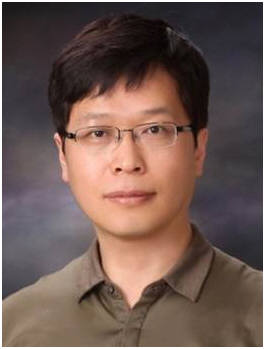Important Dates
Manuscript submissions
January 29th, 2014
Notification of acceptance
February 15th, 2014
Camera-Ready deadline
March 1st, 2014
Invited Speaker: Prof. Yuzuru Tanaka
- Computer Science Department, Graduate School of Information Science and Technology
Hokkaido University

Title:
Meme Media and Knowledge Federation for Exploratory Visual Analytics of Big DataAbstract:
Our meme media research started in 1989 has been focusing on extending the Web since 2008 to develop a WebTop meme media system WebbleWorld, with which people can publish, retrieve and utilize all kinds of Web resources including Web documents, Web applications and Web services, easily extract some portions of these resources as meme media objects, graphically and functionally combine these meme media objects to compose new Web resources as composite meme media objects, and republish such composite Web resources into the Web, only through direct manipulations. Such a process of extracting some portions of Web resources, combining them to compose new Web resources is denoted by knowledge federation. Improvisational knowledge federation denotes that such federation can be performed improvisationally by end-users only through direct manipulation of Web resources. The WebTop meme media system WebbleWorld enables improvisational knowledge federation. During the last several years, our team has been involved in two kinds of practical big data analysis projects. One includes EU FP6 project ACGT (Advancing Clinico-Genomic Trials on Cancer) and its follow-up FP7 project p-medicine (personalized medicine), where we deal with clinical trial data and patient genomic data. The other is a Japanese government-initiative project on social cyber-physical systems for the optimization on social system services, for example, snow plowing and removing services in Sapporo. These projects told us that the real worlds of such practical applications cannot be formulated by monolithic mathematical models. Macro analysis which simply applies the same statistical analysis or the same data mining algorithm to the whole target world may easily fail to obtain any significant result. Personalized medicine which is exactly based on this observation tries to find out a specific case of patients to whom some specific candidate treatment may show significantly better performance than the other alternatives. In general, we may assume that real worlds may consist of a large number of sub worlds each of which can be formulated by a rather simple monolithic mathematical model. Our question is how to find out those sub worlds, i.e., subsets of objects. There may be two possible answers. One is to develop an advanced clustering algorithm to automatically or semi-automatically find out those subsets. The other is the exploratory visual analytics approach. Unfortunately, there are no such advanced clustering algorithms that may work for our current purpose. Therefore, exploratory visual analytics is currently the only solution from practical point of view in analyzing scientific big data in research studies and urban big data in strategic operation of urban infrastructures. Exploratory visual analytics needs a large library of analysis tools and the capability of improvisationally federating some of these tools together with different data sources for complex analyses. This talk shows how meme media and improvisational knowledge federation technologies enable the development of highly interactive visual environments for exploratory visual analytics.Bio sketch:
Yuzuru Tanaka has been a full professor of computer architecture at the Department of Electrical Engineering (1990-2003), then of knowledge media architecture at the Department of Computer Science, Graduate School of Information Science and Technology (2004- ), Hokkaido University, and the director of Meme Media Laboratory (1995-2013), Hokkaido University. He was also a full professor of Digital Library, Graduate School of Informatics, Kyoto University (1998-2000), has been an adjunct professor (2004- ) and a steering committee of National Institute of Informatics (2013- ), and is also an affiliated scientist of FORTH (Institute of Computer Science, Foundation for Research and Technology-Hellas). From 2013, he is working as the program officer of a new 8 year CREST program of JST on big data application technologies, and also as an education and research councilor of Research Organization of Information and Systems consisting of seven national research institutes and centers in Japan. He is also one of the three series editors of Springer’s LNAI series. His research areas included multiprocessor architectures, database schema-design theory, database machine architectures, and full text search of document image files. His current research areas include meme media architectures (a component-based media architecture for the reediting and redistribution of knowledge resources among people), improvisational knowledge federation frameworks, proximity-based federation of smart objects, and their application to digital libraries, e-Science, explorative visual analytics for clinical trial big data, and a social cyber-physical system for optimizing complex social system services such as snow plowing and removing in Sapporo and for disaster management and response. He worked as a visiting research fellow at IBM T.J. Watson Research Center (1985-1986), is a fellow of both Information Processing Society of Japan and Japanese Society of Software Science,Invited Speaker: Prof. Wook-Shin Han
- Department of Creative IT Engineering/Department of Computer Science and Engineering, Pohang University of Science and Technology

